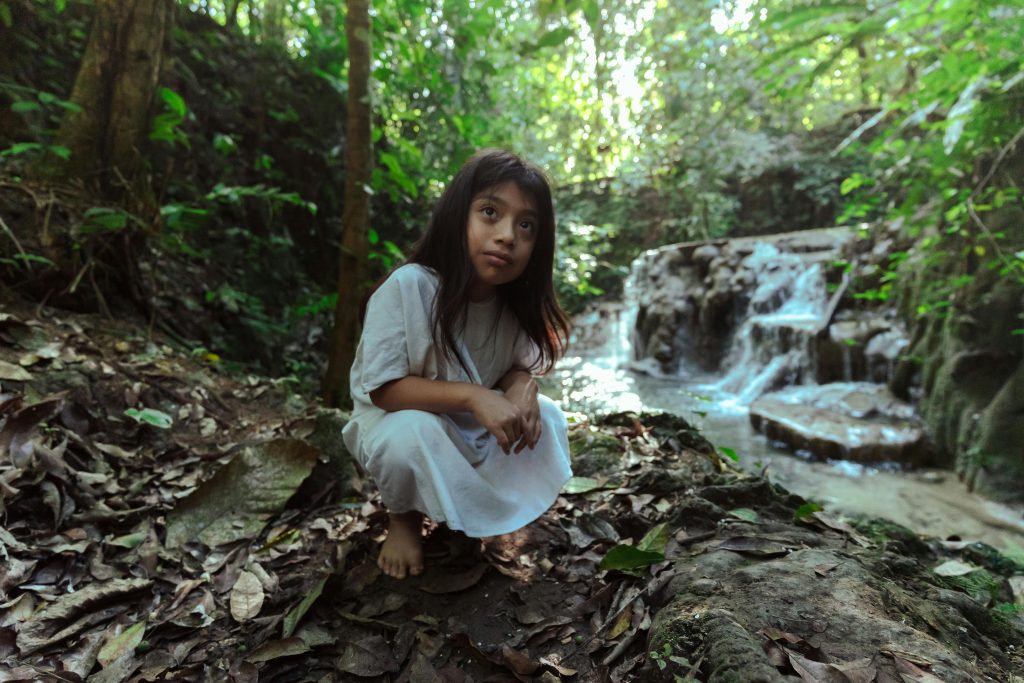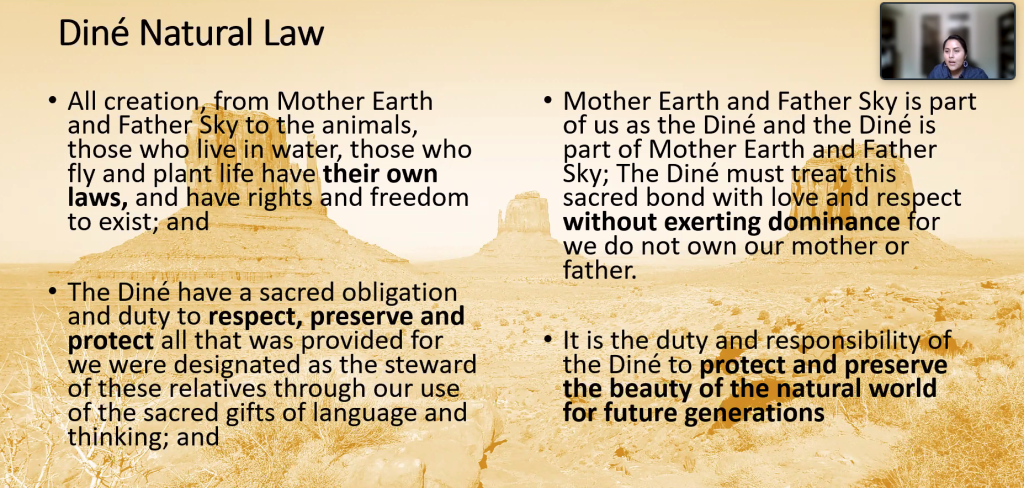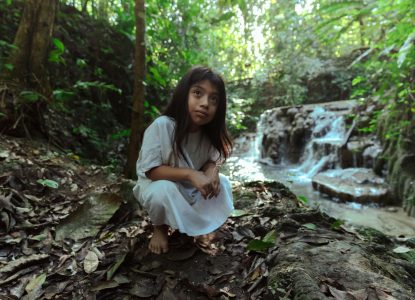By JoAnne Wadsworth, Communications Consultant, G20 Interfaith Forum
— —
On May 27, 2024, the IF20 Environmental Working Group and KAICIID co-hosted a virtual panel discussion titled “Climate Change and the Importance of Indigenous Knowledge.” The event, which was a continuation of a webinar held in October 2023, brought together experts to discuss the significance of indigenous knowledge and spiritualities in addressing climate change and building sustainable, resilient, and just communities.
Speakers included Danya Carroll of the Diné (Navajo) People, who has done extensive work with American Indian communities; George Carter, the Director of the Pacific Institute and a Senior research fellow and deputy head at the Australian National University; Tafue Lusama, the Climate Change Project Officer at the Pacific Theological College in Suva, Fiji, and head of the Institute for Climate Indigenous Knowledge (ICIK); and Amanah Nurish, an Indonesian ethnographer and anthropologist, Fulbright visiting scholar at Stanford’s Department of Anthropology, and KAICIID fellow. The discussion was moderated by Amanah Nurish and Arthur Dahl (IF20 Environmental Working Group).

Arthur Dahl began the webinar by setting the scene and referencing points made in IF20’s first webinar on this topic last year, emphasizing the challenges faced by indigenous communities, particularly those in island nations threatened by rising sea levels. He posed thought-provoking questions about the consequences of land disappearing underwater and the impact on the identity of affected communities.
“What do you do if the land you’re attached to disappears underwater? Where do you go? What is your identity?”
Dahl also highlighted the importance of the Fourth Conference of Developing Small Island States, which was taking place in Antigua on the same day as the webinar, and shared his concerns for these indigenous peoples, having worked in the Pacific islands for 55 years. He then invited each of the speakers to share their comments.
Danya Carroll
Carroll, speaking from the perspective of American Indian communities, highlighted the importance of Indigenous Natural or First Laws. She emphasized that indigenous peoples often associate their own laws with the laws of the natural world and that the health of Mother Earth is intrinsically connected to the health of the community.
“Indigenous peoples may associate their own laws with the laws of the natural world, which are formally termed or translated to natural laws. We can’t disconnect our own health from the health of Mother Earth.”
Carroll also discussed the Diné (Navajo) teachings, which consider elders and medicine people as central to their societal and government systems in passing down the knowledge of natural laws.

George Carter
Carter spoke about the transformational contribution of indigenous people in higher education. He highlighted the importance of incorporating indigenous knowledge into university curricula and values, as well as the need for decolonizing academia.
“When they lead in universities or opportunities to create higher educational curriculums, we’re creating a pathway to truly transformational knowledge. A lot of indigenous knowledges are being actively imported into curriculums at Pacific universities and being incorporated into their values.”
Carter also mentioned the efforts to revive national and indigenous languages as languages of instruction in schools and governments, as well as the incorporation of Pacific philosophy into mainstream education.
Tafue Lusama
Lusama focused on the spiritual aspects of indigenous theology and its relation to climate change. He critiqued the dominant theological teaching that places human beings at the apex of creation, leading to destructive development models that prioritize profit above all else.
“Indigenous philosophy, based on lived experiences and worldviews rather than western colonial or Christian frameworks, does not follow that framework. We need a new approach — one that is inclusive, founded on Pacific spiritualities, and acts in respect to indigenous worldviews, which respect the land and all of creation in traditional, cultural, and appropriate/sustainable ways.”
Lusama emphasized the need for a new approach based on the relational way of life of indigenous communities, which recognizes the interconnectedness and interdependence of all living beings.
Amanah Nurish
Nurish shared her experiences working with indigenous communities in Indonesia and the challenges they face due to modernization and industrialization related to climate change. She stressed the importance of belief systems, spirituality, and values in the context of climate change and the need for concrete actions to support indigenous communities.
“So why do belief systems and spirituality and tradition matter in the context of climate change? There are between 40-70 Million indigenous communities in Indonesia who rely on nature for their livelihoods, according to both tradition and spiritual practice. They are really struggling with modernization and industrialization related to climate change.”
Nurish also highlighted the significance of religious coping for indigenous communities facing climate change and the necessity of interreligious dialogues to bridge conflicts between various stakeholders.
Q&A and Conclusion
The Q&A session delved into various topics, including the importance of indigenous knowledge in decolonizing education systems, supporting indigenous communities, preserving indigenous knowledge, and inviting indigenous actors to decision-making tables. The discussion also touched on the need to transition from westernized, materialistic, and capitalistic worldviews to more indigenous approaches and the legal protection of nature’s rights.
As the world grapples with the impacts of climate change, the insights and wisdom of indigenous communities offer invaluable guidance in building sustainable, resilient, and just societies. By acknowledging the importance of indigenous knowledge and spiritualities, we can work towards a more holistic and interconnected approach to addressing the global climate crisis.
— —
JoAnne Wadsworth is a Communications Consultant for the G20 Interfaith Forum Association and Editor of the Viewpoints Blog.


